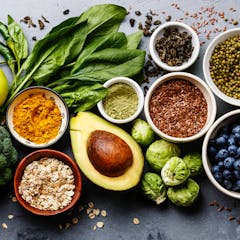
Articles on Global supply chains
Displaying 21 - 40 of 58 articles

Food, fuel and fertiliser prices were rising fast even before war broke out. We need to act now to avoid a humanitarian crisis.

In spite of public disapproval, food prices are likely to remain high this year unless the government intervenes to cushion farmers from rising costs.

The shock waves from Russia’s invasion of Ukraine rippling through world energy, food and trade supply lines are profound, but not big enough to split the global economy

In the short term, the war is causing energy prices to soar and prompting fears of famine in some countries. In the long term, it could remake the modern global supply chain.

Our new research sets out six ways to cut a more gender-just and sustainable fashion sector.

If you own a diesel car with an AdBlue tank, your engine is programmed to not start once you run out of it. But Australia can handle the looming diesel engine additive shortage – if we don’t panic.

How could a company highly regarded for its commitment to sustainability do so badly on the industrial relations front, pushing staff to strike for almost a fortnight?

Inflation soared 6.2% in October from a year earlier, the fastest pace since 1990.

Two supply chain experts see a major flaw in how ratings agencies measure companies’ environmental, social and governance performance.

The world needs robust supply chains that are founded on sustainability, collaboration, trust, transparency, visibility and diversification of supply.

An expert on global supply chains explains why shortages of many products have persisted throughout the pandemic.

Before the container was standardized, loading and unloading goods was very labor-intensive, inefficient and costly.

Australia’s Senate has voted to prohibit the import of goods made using forced labour. But without government support it won’t become law.

Notable events — including the COVID-19 pandemic — have revealed the weaknesses in global supply chains. Companies need to ensure the resiliency of the manufacturing and distribution systems.

Shutdowns at microchip factories, panic-buying by electronics manufacturers, and legions of workers and home-schoolers needing new devices, have put a global squeeze on the electronics market.

Skyrocketing demand coupled with shortages of vital components is leading to bottlenecks in the supply chain of Pfizer’s and other mRNA vaccines.

The 2013 Dhaka garment factory collapse is the clothing industry’s worst ever industrial incident. Not enough has changed for garment workers.

Food safety agencies have assessed the risk of acquiring COVID-19 from contaminated food or food packaging. They found that currently, there’s no evidence that the virus is a food safety risk.

How a veterinarian and a law professor joined a multidisciplinary team to help produce a made-in-Saskatchewan emergency-use ventilator during the COVID-19 pandemic.

African policymakers should strenuously safeguard their right to choose from the widest possible range of technology options that suit their countries’ development needs.

